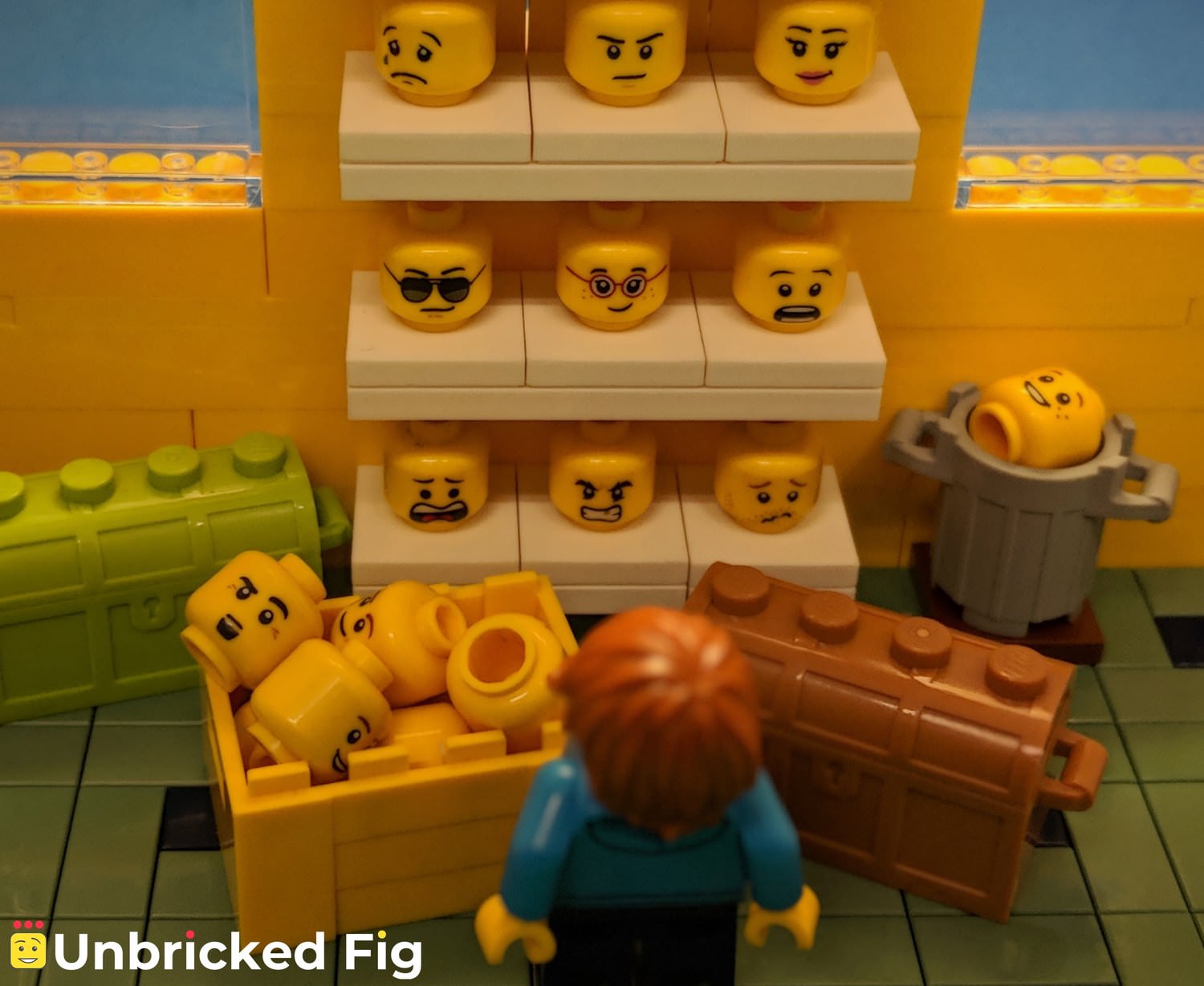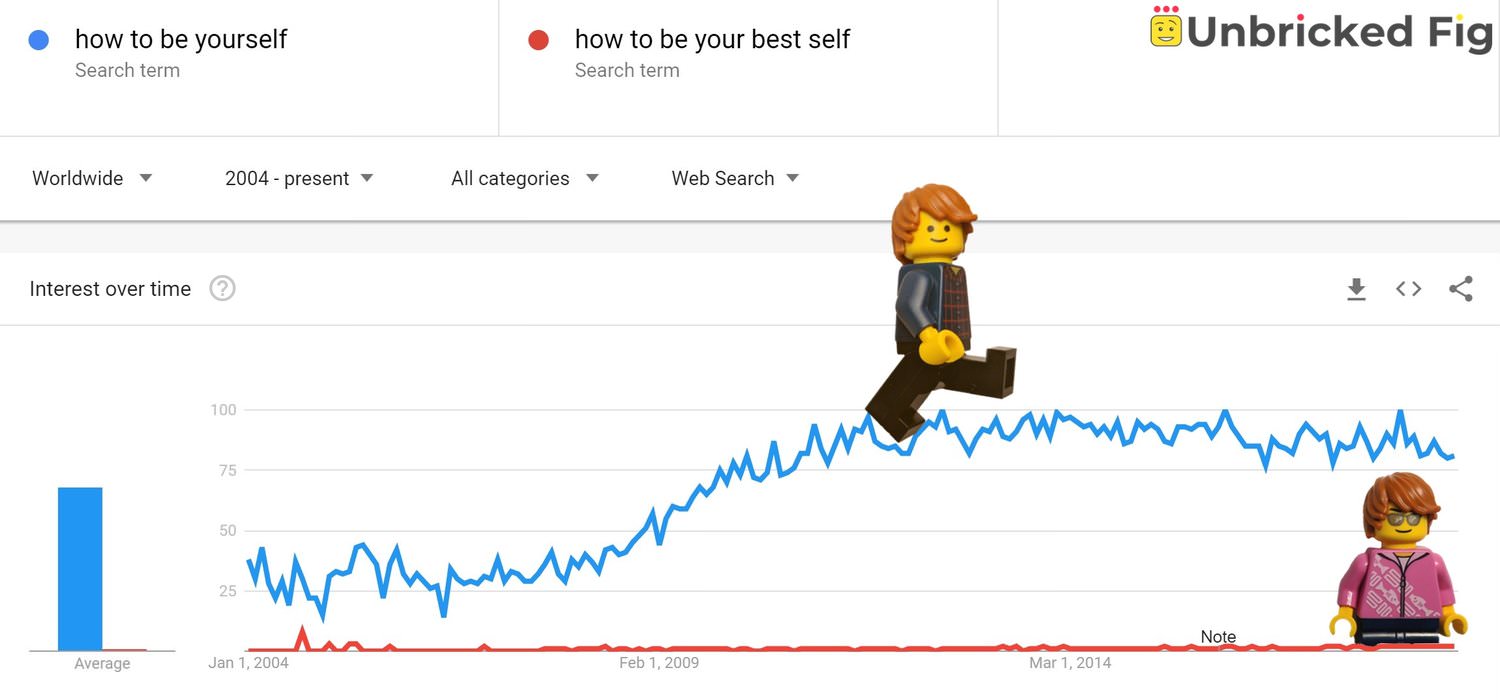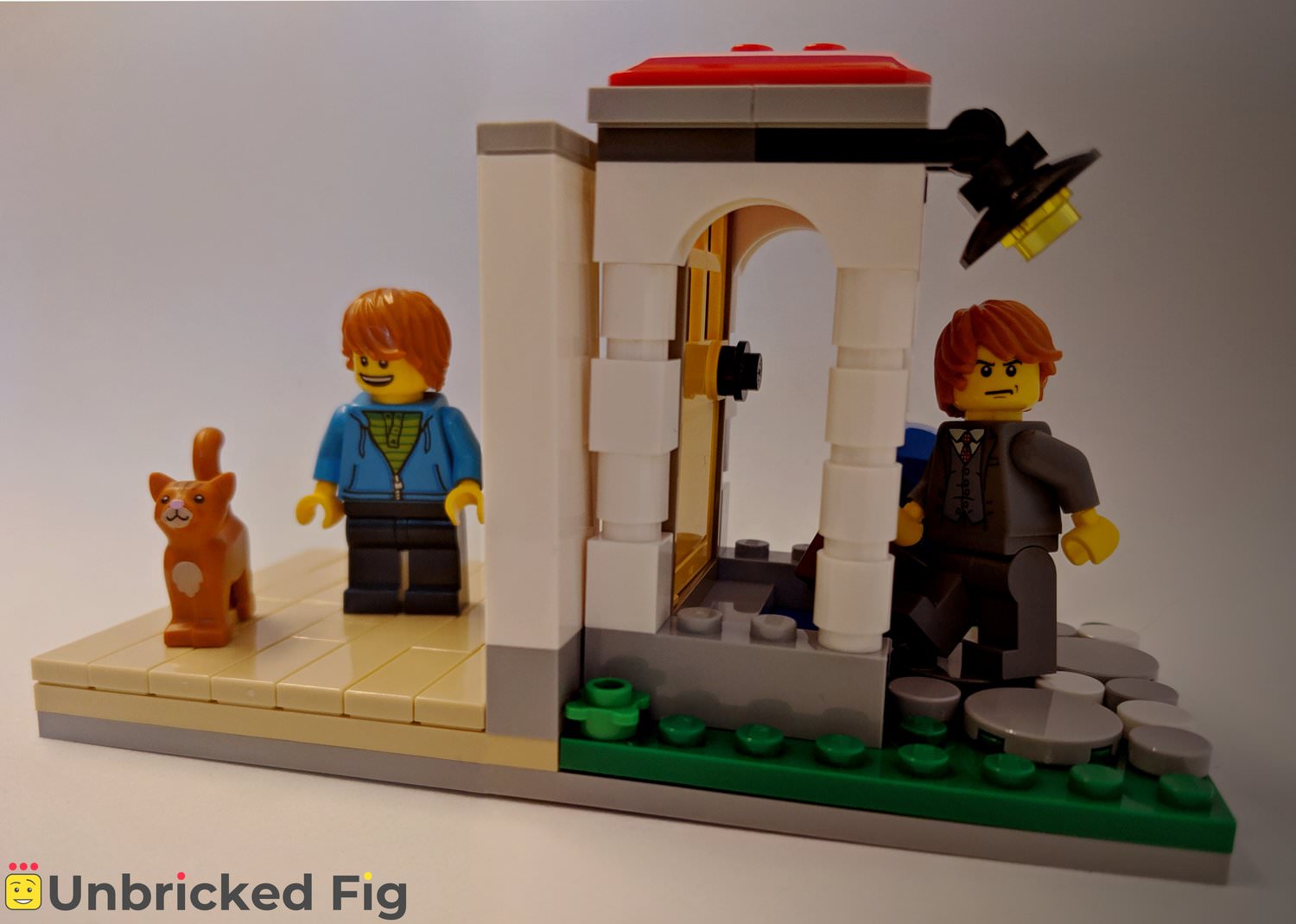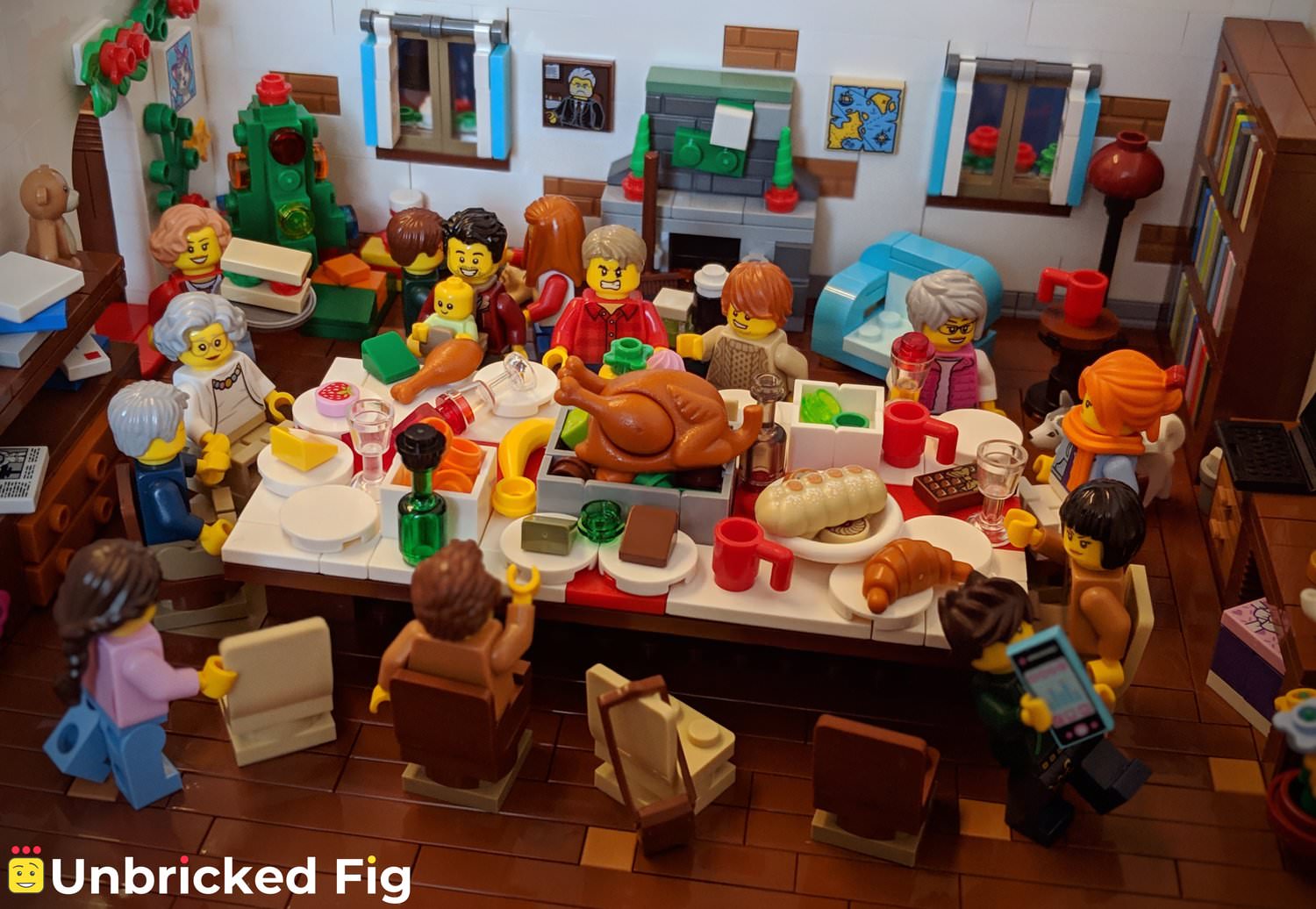Being yourself vs. being your best self
“Just be yourself” is a phrase we commonly hear in movies and while giving advice to each other. We also use the phrase “not yourself” when you’re not feeling well or not behaving like you usually would – as if your real self suddenly decided to take a vacation, leaving its inexperienced cousin in charge of your actions.
The holiday season with its big family gatherings can undoubtedly bring out a different side of us, often making us “act out of character,” being either our best or worst selves. Should you be worried about not being quite yourself around family? Or does your family bring out your true self?
It seems like this is the perfect opportunity to explore whether we each have a true self to be or whether we all have our own internal self store we can go to and pick out the best self – for life or maybe just for the upcoming family gathering.

What we type into the confessional
With search engines being our modern day confessionals, I turned to Google to explore our views. The autocomplete list of suggestions basically shows you the most popular things people type in the search box when no one is looking. By typing in “how to be you,” Google autocomplete reveals that we’re curious both about “how to be yourself” (first place) and “how to be your best self.”
Let’s dig deeper. Using Google Trends, we can analyze how the popularity of both these queries varies over time and over the world. And sure enough, ever since 2004, “how to be yourself” has a strong lead over “how to be your best self.” Around summer 2008, the interest in “how to be yourself” started growing, increasing its lead over “how to be your best self.” Incidentally, Facebook announced their first 100 million users in August 2008. I know, correlation, not causation, but I think it’s a pretty interesting coincidence. The “how to be yourself” growth stabilized somewhere in 2011.

Based on our Google searches, it would seem that the belief in a stable self is quite widespread, even though we seem a bit confused about how to actually find and be ourselves. Let’s explore what the latest scientific research has to say on the topic of self and personality.
Isn’t the blueprint for your self baked into your genes?
The concept of having a soul, some sort of essence, has somewhat fallen out of fashion. Instead, it feels more scientific to look for personality blueprints in our genes. In fact, popular DNA analysis services often include a personality test. Does that mean that you can look at someone’s DNA data and know how that person is going to act in a given situation?
Well, it’s not quite that simple. First of all, you have to understand the cultural context of the situation – what’s the expected or encouraged behavior? You also have to take into account the person’s previous experiences (especially childhood traumas), know whether they are under stress, depressed or maybe just tired after reading a ton of research papers.
While there is some evidence that the
"big five" personality traits
 The big five traits (you can remember the mnemonic OCEAN) are: Openness, Conscientiousness, Extraversion, Agreeableness, and Neuroticism. Note that all these are not either-or categories, traits are dimensions. In other words, you're not either an extrovert or an introvert, you can be happily in between. The traits often interact with each other to influence behavior and are not good or bad on their own. As we'll see, context always matters.
are relatively stable and influenced by your genes, there's also increasing evidence about how environment works together with your genes to determine whether you'll snap when your mother keeps asking you about when you're going to have kids or whether you'll be able to smile and let it go. The environment is defined very broadly here, from what the cells in your body are currently up to, your hormone levels, sensory inputs, past experiences, and let's not forget all the cultural baggage that comes through other people, the media, the language(s) you speak and so much more.
The big five traits (you can remember the mnemonic OCEAN) are: Openness, Conscientiousness, Extraversion, Agreeableness, and Neuroticism. Note that all these are not either-or categories, traits are dimensions. In other words, you're not either an extrovert or an introvert, you can be happily in between. The traits often interact with each other to influence behavior and are not good or bad on their own. As we'll see, context always matters.
are relatively stable and influenced by your genes, there's also increasing evidence about how environment works together with your genes to determine whether you'll snap when your mother keeps asking you about when you're going to have kids or whether you'll be able to smile and let it go. The environment is defined very broadly here, from what the cells in your body are currently up to, your hormone levels, sensory inputs, past experiences, and let's not forget all the cultural baggage that comes through other people, the media, the language(s) you speak and so much more.
Genes, meet environment. Environment, meet genes.
As explained by biologist Robert Sapolsky in the book Behave, it’s all very complicated. But it also makes sense. If who we are was baked into our genes, we probably wouldn’t be able to adapt to our crazy modern world, create such diverse cultures in different parts of the world, and come to think of it, even evolve into humans. In fact, Sapolsky writes that the more complex an organism is, “the more its genes have room to be influenced by the environment.” In other words, your genes will make sure you’re born human-shaped with certain eye color and things like that, but the more interesting differences in how you think and behave are heavily influenced by the time and place you happen to be born in and all the experiences you have in your lifetime.
One notable example emphasized by Sapolsky is the fact that your frontal cortex – the part of your brain that is supposedly in charge of making rational decisions and all sorts of fancy high-level thinking – doesn’t fully mature until you’re in your mid-twenties. This explains why we’re so obnoxious as teenagers: our brain is giving us plenty of time to explore who we are, giving us the opportunity to be literally shaped by the environment we’ll have to live the rest of our lives in.
And while it was once thought that your brain is pretty much fully baked and slowly dying off once you reach adulthood, there is now increasing evidence that shows your brain continues to adapt throughout your adult lives. In other words, being yourself is not a fixed state, it’s literally the journey of a lifetime, continuously shaped by your environment.
Being a different self when you care about something
Does this mean you can be whoever you want to be? Switch to a different self and suddenly be happy? Ah, if only it were that simple! The fact remains that your genes define a starting point, and there’s no way you can control all aspects of the environment that shape you – although you can change how you interpret the s*** that happens or use any other self-regulation strategies.
Still, acting “out of character” is certainly possible and quite common. Psychologist Brian Little talks about “free traits” when you act differently from what your “brain wiring” would have you do to advance your core personal projects that add meaning to your life. You usually do it out of love or out of professionalism. For instance, even if you’re a biogenic introvert, you can act like an extrovert to promote a cause you’re genuinely passionate about, or you try to be more agreeable than you are to a family member with whom you want to reestablish a relationship. Personal projects usually work out better – both for your well-being and successful completion – when you’re internally motivated to pursue a project – i.e., not when your parents guilt you into becoming a lawyer against all your instincts.
A mismatch between your biogenic dispositions – the big five traits – and the free traits you engage in to fit your context, can have unpleasant consequences on your well-being. Push a mismatch for long enough, and you’ll likely end up burned out and wondering who you really are. When this happens, you and your other selves probably need a reconciliatory dance.
In other words, pretending to be someone you’re not just to please your family might be bad for your well-being. Although, it might work out better if keeping your family happy is your chosen core personal project, the one you value above others. Regardless of which projects you choose and the (mis)match between your stable and free traits they entail, just keep in mind that these different selves are still you, and you need to find a way for them to live together in the same body unless you want to end up as a nervous wreck with a ton of health problems.

What about your best self?
My takeaway from all of this is: despite our Google searches, there is no single best self you’re meant to be, being yourself is a matter of context and various factors that influence your behaviors within said content. The “best self” for your professional environment is likely quite different from the “best self” you want to bring home to your family or on a night out drinking with friends. The point is, do listen to your gut feelings once in a while and don’t stress too much about being consistently one true self. Who you are changes through life – and that’s a feature, not a bug! As a general rule we do have a tendency to resist change – ugh, efforts, yuck! – but you can have a much more interesting life if you explore different aspects of yourself and allow your definition of self to change as a result of your environment.
After all, life would be pretty boring (and quite depressing) if we were all predictable embodiment of our genes. Different selves bumping into each other is what makes your self and other selves more nuanced. Enjoy the ride, and don’t be too hard on the selves you and your family bring over during the holidays. There are usually more pleasant selves hiding underneath, just taking a nap while waiting for the right occasion to shine.

Dig deeper: recommendations
Grabbing a good book over the holidays can be a great way to recharge, especially for introverts. Here are my recommendations for books that will help you understand your and other’s selves a little bit better:
-
Me, Myself and Us: The Science of Personality and the Art of Well-being by Brian R. Little if you want to dig deeper into stable vs. free traits and how they relate to personal projects. It can make you reevaluate how you choose your core projects, the way you judge other people, and even the place you live in.
-
Behave: The Biology of Humans at Our Best and Worst by Robert Sapolsky if you want your mind blown by how our behaviors are influenced by the little things like neurons and hormones, all the way to the big stuff like how our ancestors’ culture was shaped by their landscape and farming style. It’s a long read but highly recommended if you want to appreciate the complexity of our behaviors.
Unbrick your fig challenge
By cutting yourself some slack during the holidays, you will receive:
- 💎 10 resilience
